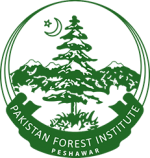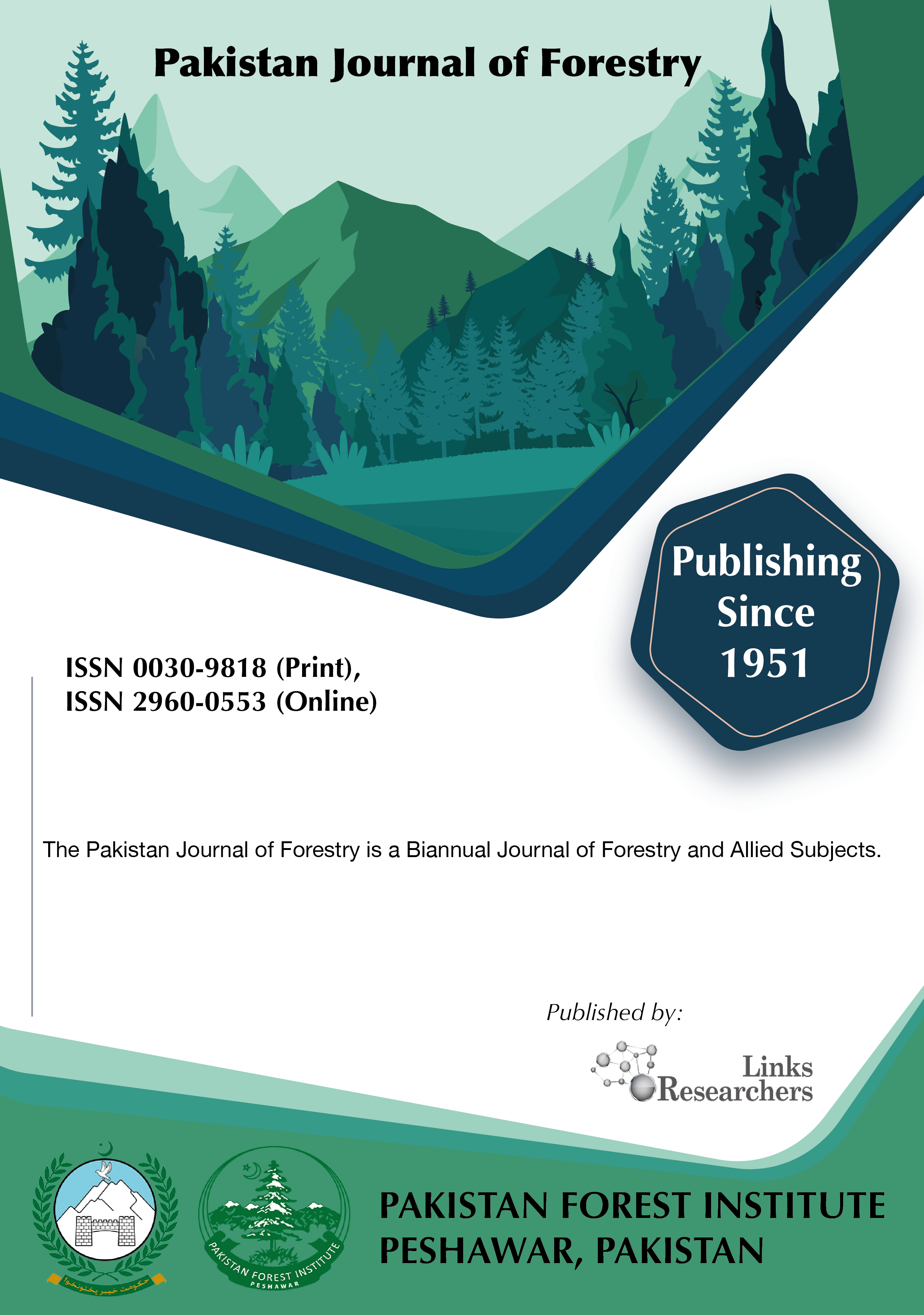Comparative Assessment of Carbon Stocks in Guzara and Reserved Forests of Siran Valley, Mansehra, Khyber Pakhtunkhwa
Comparative Assessment of Carbon Stocks in Guzara and Reserved Forests of Siran Valley, Mansehra, Khyber Pakhtunkhwa
Anwar Ali1*, Muhammad Ayaz Khan2 and Nowsherwan Zarif1
ABSTRACT
A study was conducted in Moist Temperate Forests of Siran Valley of District Mansehra, Khyber Pakhtunkhwa to estimate and compare carbon stocks in Guzara and Reserved Forests. Data was collected from 253 sample plots using a systematic random sampling technique. The total carbon stock in the study area was estimated as 1,374,702 tonnes. Out of this, 56% is in the soil, 33 % in aboveground biomass, 9% in belowground biomass and 2% in litter. Average carbon density was estimated as 100 t/ha in the landscape. Mean aboveground carbon density was determined at 33.60 t/ha. In Reserved Forest the aboveground carbon stock is 42.29 t/ha whereas in Guzara Forests, this carbon is 27.20 t/ha. Similarly, belowground carbon stock in the landscape was estimated as 9.74 t/ha. Litter carbon was estimated as 1.97 t/ha and organic soil carbon was estimated at 55.47 t/ha. Carbon density is higher in all pools of Reserved Forests as compared to Guzara Forest. Carbon density in the reserved forest is 115.51 t/ha and Guzar Forest is 91.88 t/ha. This difference between Guzara and Reserved Forests is due to the fact that Guzara Forests have been severely degraded as these are used for meeting the timber and fuelwood requirements of the local community due to which biomass carbon stock has been significantly reduced. The study recommends to conserve and develop these forests through initiation of a REDD+ Project with active community participation. It is also recommend to stop open grazing and illicit cutting for the rehabilitation of these valuable forests.
To share on other social networks, click on any share button. What are these?




